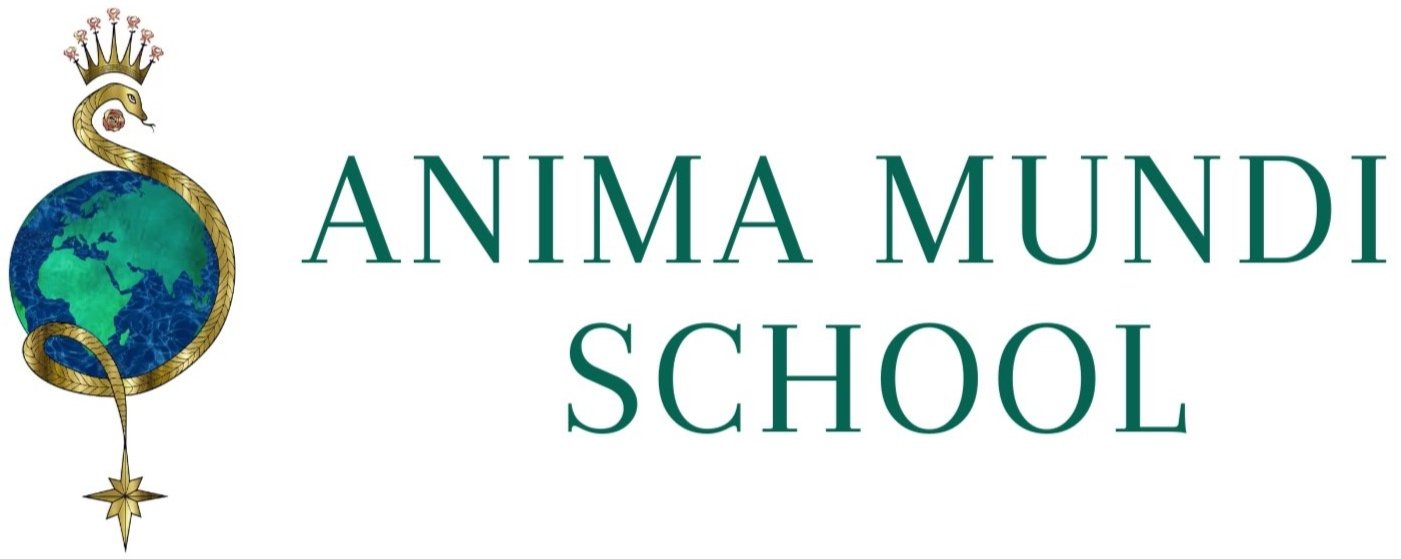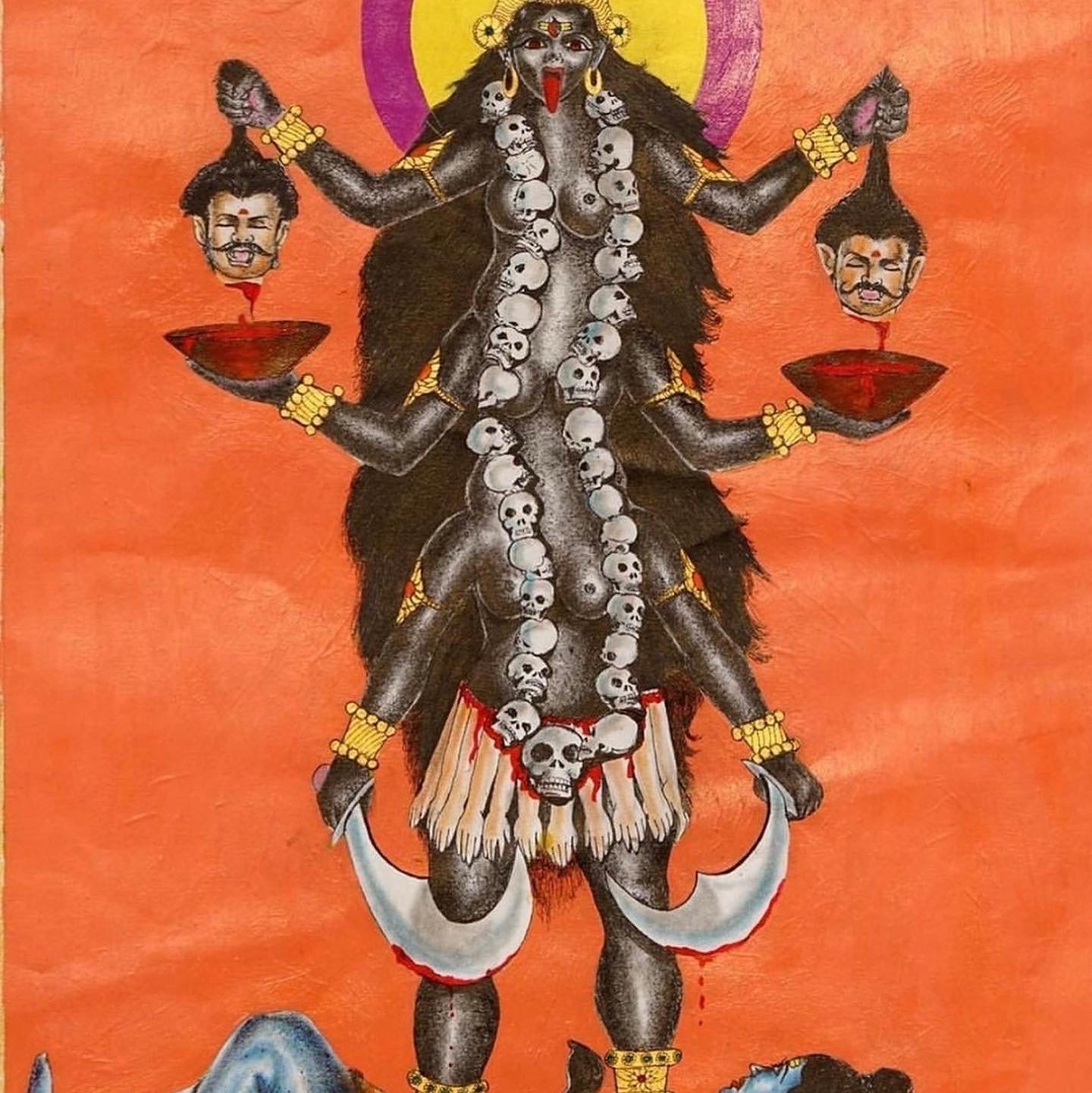Eating Patriarchal Evil with Kali
on The Duty of Withdrawing Projections in Times of War and Conflict
In the myth of Kali, the dark Hindu goddess of death and transformation, the patriarchal demons have gone mad, drunk on power and destruction. None of the goddess forms is able to stop them, they have grown so large and out of control that they are indeed set to destroy the entire creation. It is at this moment that Kali is born out of the already powerful Durga; this crone goddess, dark as coal appears with a lolling tongue, eyes wide and a sickle in the hand she starts to slaughter and behead the demons. But, this seems to only make matters worse as for every blood drop that is shed, a thousand demons emerge once it hits the soil. The demonic patriarchal powers multiply beyond control. The only solution is to "eat the blood" before it hits the ground. And so, Kali does exactly that. As she beheads, she eats the evil, takes it inside herself to save creation from total destruction.
This moment in the myth, the image of the blood drops, creating a thousand more demons every time it hits the soil, has come to my mind many times as I watch the news and horror of destruction and war, suffering and killing in the Middle East. The blood spilled for the sake of revenge, power or total annihilation of a perceived enemy. And every time this blood is spilled, a seed of hatred is sown into the world soul. The demons only multiply and multiply during war. No enemy is eliminated, no villain is killed with the shedding of blood.
kali’s wisdom
What then, does this moment in the myth teach us? After 6 years of working with the Kali myth in-depth with my colleague Gauri Raje, and seeing the myth expand and flesh out in our psyches as well as the women we have worked with, we come to a moment in history where more than ever the myth is played out on a global stage. Psychologically, it does not matter on whose "side" you stand in the Middle Eastern war (even though it will matter very much politically and socially). But for the psychological burden on each of us, it does not change; on either side there is a perceived demon, an enemy that needs to be destroyed and eliminated. The Kali myth teaches us that eliminating evil, killing evil only breeds more evil. The spilling of blood makes fertile ground for bitter seeds of hatred to grow in the human heart that, over time turn the tree of life into a tree of death. What Kali teaches us then, is that we must take it in. We must eat the blood of the demon. We cannot project evil to the other and "eliminate" it. We must take back the projection and take it in, become part of its ecology, so to say. Herein then lies the great capacity for compassion; for only when we have tasted our own shadow and evil, can we contribute to the healing of the world soul from the destructive and tyrannical powers of revenge, oppression and destruction. Kali as goddess and archetypal force wields a sword; she kills what is destructive and evil. But much like a bodhisattva, she then takes it in, she eats evil in order to contain it in the black void of her body. This comes with a price as she then becomes totally drunk on her own power, or perhaps this mad power she swallowed now takes possession of her. After a furious dance battle with Shiva, it is only—and finally—the force of compassion and mercy—her impetus for tenderness and nurturance—for a Shiva-turned-infant that can calm her down and bring her, and the world soul, back into balance.
The crone goddess Kali eats the Asura demons with her lolling tongue
Psychologically, this means that there is a great burden on us all as we witness the unfurling of a world in conflict and war. Each of us who has the consciousness and ability has to take in one droplet of this evil, has to swallow it and make it our own; that is, to take back the projections we have cast on the "other" and weave ourselves back into the ecology of what has become rejected and evil within ourselves. By this great act of compassion, we begin the task of ceasing the destructive powers of a droplet of blood. This is no easy task as the average wo/man will find it difficult to imagine that the evil they witness on the world stage is part of us, and is living in the dark basements of our own psyche. This is why Jung said as he did in this now famous quote: "The world hangs on a thin thread, and that is the psyche of man.” Unless we take back the projections of the "barbaric other", the world soul will continue to suffer alone, and this great time of transition will be lost to modern wo/man's vanity and ignorance.
““The best political, social, and spiritual work we can do is to withdraw the projection of our own shadow onto others.””



